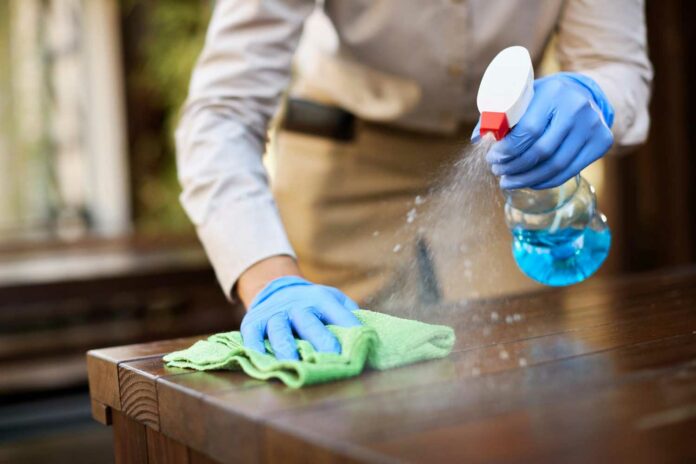Clostridioides difficile is the most common cause of antibiotic-associated diarrhea globally. Its spores have been implicated in the prevalence of C. difficile infection due to their resistance and transmission ability between surfaces. Currently, disinfectants such as chlorine-releasing agents (CRAs) and hydrogen peroxide are used to decontaminate and reduce the incidence of infections in clinical environments.
Previous research demonstrated the ability of C. difficile spores to survive exposure to recommended concentrations of sodium dichloroisocyanurate in liquid form and within personal protective fabrics such as surgical gowns.
A new study by the University of Plymouth examined the spore response to clinical in-use concentrations of sodium hypochlorite. Scientists found that showed spores of Clostridioides difficile, commonly known as C. diff, are entirely unaffected despite being treated with high concentrations of bleach used in many hospitals.
What’s more, when used as a surface disinfectant, the chlorine compounds are no more effective in killing the spores than plain old water.
Susceptible individuals receiving care in clinical settings may run the unintentional risk of catching the superbug. Therefore, scientists have advocated for urgent study to identify alternate methods of disinfecting C. diff spores to break the chain of transmission in clinical contexts, as the incidence of biocide overuse only fuels global increases in antimicrobial resistance (AMR).
Tina Joshi, associate Professor of Molecular Microbiology, said, “With the incidence of antimicrobial resistance on the rise, the threat posed by superbugs to human health is increasing. But far from demonstrating that our clinical environments are clean and safe for staff and patients, this study highlights the ability of C. diff spores to tolerate disinfection at in-use and recommended active chlorine concentrations. It shows we need disinfectants and guidelines that are fit for purpose and align with bacterial evolution. The research should have a significant impact on current disinfection protocols in the medical field globally.”
For the study, scientists investigated the spore response of three distinct C. diff strains to three clinically relevant sodium hypochlorite concentrations. After being spiked onto surgical scrubs and patient gowns, the spores were analyzed under scanning electron microscopes to see if the outer spore coat had changed morphologically.
Dr. Joshi said, “Understanding how these spores and disinfectants interact is integral to practical management of C. diff infection and reducing the burden of infection in healthcare settings. However, there are still unanswered questions regarding the extent of biocide tolerance within C. diff and whether it is affected by antibiotic co-tolerance. With AMR increasing globally, the need to find those answers – both for C. diff and other superbugs – has never been more pressing.”
Journal Reference:
- Humaira Ahmed, Lovleen Tina Joshi. Clostridioides difficile spores tolerate disinfection with sodium hypochlorite disinfectant and remain viable within surgical scrubs and gown fabrics. Microbiology, 2023; 169 (11) DOI: 10.1099/mic.0.001418
